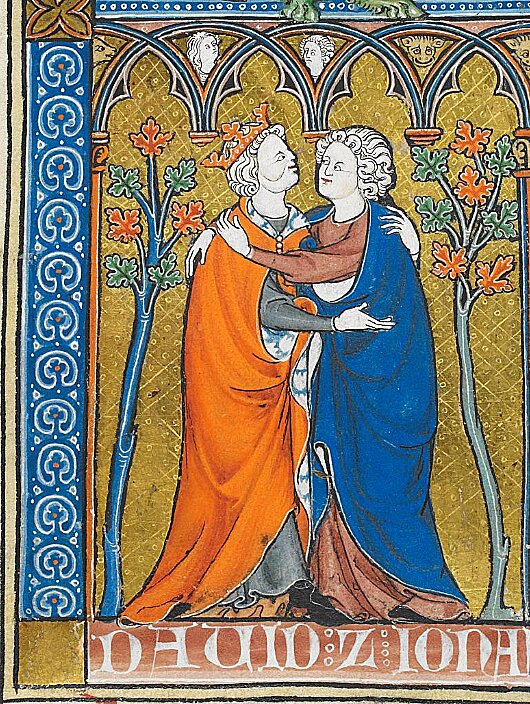Day 5 of the Bible verse challenge.
My all-time favourite Bible verses from my all-time favourite Bible chapter: Isaiah 40.
Isaiah 40 is mind-blowing. It has inspired poets and musicians from Handel (Messiah) to U2 (“Drowning Man” from the “War” album… before they sold out, man!). The book of Isaiah is often divided by Bible scholars in three – Proto-Isaiah for Chapters 1-39, Deutero-Isaiah for Chapters 40-55 and Trito-Isaiah for Chapters 56-66. This is, then, the start of the Deutero-Isaiah section. Preceding chapters have been warnings of coming dangers and mentioned Isaiah a lot, but now Isaiah stops being mentioned and the suffering has come, yet the message is of great hope when all seems hopeless. It is generally assumed that this part of the Book was written by an anonymous writer near the end of the Babylonian exile. And what a writer! This is the writer who introduces the idea of the Suffering Servant dying as a sacrifice for all which is (of course) so important for Christians. So, just for the unusual and striking theology alone this would be a significant writer but the imagery is beautiful too. To tell the truth, I’ve never got much out of the poetry of the Psalms – others do, but I don’t but I am amazed at the gorgeous rhetoric of Deutero-Isaiah. I would like to quote the whole of Isaiah 40 to prove it – its message of comfort, its forecast of John the Baptiser, the “all flesh is grass” – but I’ll leave you to look that up and just quote the final verses:
30-31 Even youths grow tired and weary,
and young men stumble and fall;
but those who hope in the Lord
will renew their strength.
They will soar on wings like eagles;
they will run and not grow weary,
they will walk and not be faint.
Wow!

 I remembered that in the 1980s a school asked celebrities for their favourite Bible verses. I knew that Arthur Scargill was one of the celebrities but that Peter Cushing had chosen something that sounded really good from the Book of Revelation. I tried in vain to find anything online about this and then decided I would have to choose something myself.
I remembered that in the 1980s a school asked celebrities for their favourite Bible verses. I knew that Arthur Scargill was one of the celebrities but that Peter Cushing had chosen something that sounded really good from the Book of Revelation. I tried in vain to find anything online about this and then decided I would have to choose something myself.
 Were David and Jonathan lovers, then? Who knows? To modern ears, a man who declares the love between himself and another man to be superior to heterosexual love is defining himself as homosexual but, in other ages which were, depending on your viewpoint, more repressed, or less slutty, than ours, it would have been less clear-cut. Often, throughout history, people have had “romantic friendships” with members of the same gender – Tennyson, Eleanor Roosevelt, Queen Anne and the Ladies of Llangollen for instance. Some of these were, no doubt, sexual but, with others, the members of the couple would have been outraged at the very thought. In a patriarchal society, love between equals, with similar levels of education and engaged in similar tasks, could only be between members of the same gender. Both David and Jonathan fathered children and David was even prepared to commit murder as a consequence of the passion of his heterosexual lusts but, for true companionship, they turned to one another and their love was “more wonderful than the love of women”. And the Bible, so often used to condemn same-sex love, celebrates it and celebrates it beautifully!
Were David and Jonathan lovers, then? Who knows? To modern ears, a man who declares the love between himself and another man to be superior to heterosexual love is defining himself as homosexual but, in other ages which were, depending on your viewpoint, more repressed, or less slutty, than ours, it would have been less clear-cut. Often, throughout history, people have had “romantic friendships” with members of the same gender – Tennyson, Eleanor Roosevelt, Queen Anne and the Ladies of Llangollen for instance. Some of these were, no doubt, sexual but, with others, the members of the couple would have been outraged at the very thought. In a patriarchal society, love between equals, with similar levels of education and engaged in similar tasks, could only be between members of the same gender. Both David and Jonathan fathered children and David was even prepared to commit murder as a consequence of the passion of his heterosexual lusts but, for true companionship, they turned to one another and their love was “more wonderful than the love of women”. And the Bible, so often used to condemn same-sex love, celebrates it and celebrates it beautifully!